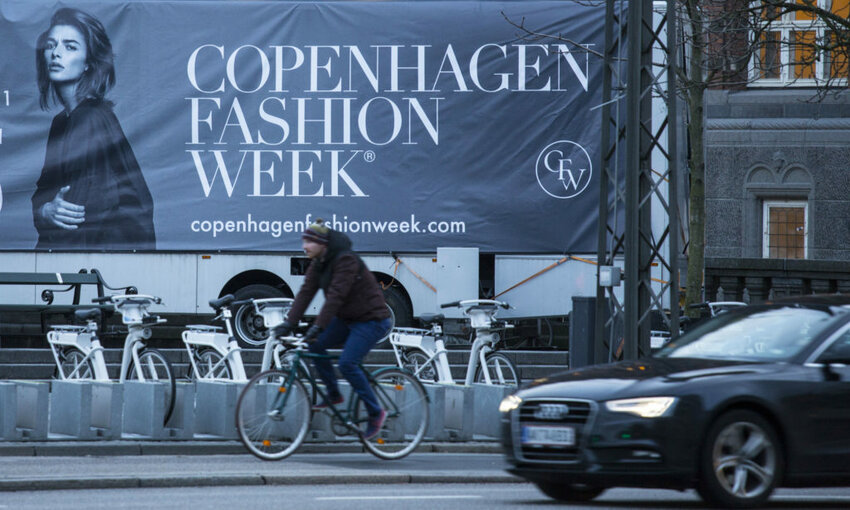 (Photo Credit: News Oresund, Flickr Creative Commons)
(Photo Credit: News Oresund, Flickr Creative Commons)Copenhagen Fashion Week organizers introduced a three-year sustainability action plan this week that calls for “radical” changes. Among them: halving its carbon footprint, moving to zero waste, and aligning with United Nations Sustainable Development Goals.
The Sustainability Action Plan 2020-2022 has two main focus areas. One is on changes to the Copenhagen Fashion Week event itself while the other is how the event could become a catalyst for more responsible business practices in the fashion industry.
“All industry players — including fashion weeks — have to be accountable for their actions and be willing to change the way business is done,” CEO Cecilie Thorsmark said. Copenhagen Fashion Week is a nonprofit organization with 15% of the budget from public funding and 85% from commercial partnerships. The Danish Ministry of Industry, Business and Financial Affairs is their main contributor.
For the week itself, organizers aim to cut the carbon footprint in half by the end of 2022. Other goals include finding alternatives to disseminate shows using digital solutions that minimize travel, and becoming zero waste through reduce, reuse, and recycling.
Last year the week banned single-use plastic bottles at all events, facilities, shows, and showrooms. Organizers also published a free 15-step guide updated seasonally to help fashion brands to produce more responsible shows, presentations, and events.
The new plan for 2022 presents specific targets that align with SDG 12: responsible consumption and production, SDG 13: climate action, and SDG 17: partnerships for the goals. This year the organizers also want to measure the event’s entire carbon footprint.
For producing fashion week activities, the organizers said that they began prioritizing sustainable sourcing for supplies like food, snacks, and beverages. Staff T-shirts became Fair Trade organic cotton, the event stopped using goodie bags, and switched to only using electric vehicles.
“The fashion industry stresses our planet and livelihoods,” Thorsmark observed in the plan’s introduction. In July 2019, the Swedish Fashion Council cited sustainability concerns in canceling the Stockholm Fashion Week that had been scheduled for August.
The Copenhagen plan introduces sustainability requirements for fashion brands that will go into effect in January 2023. At that point, eligibility to apply for a show or presentation during the week will mean achieving a minimum score in six areas: strategic direction, design, smart material choices, working conditions, consumer engagement, and shows.
“As a biannual event we are unable to directly influence the everyday operations of brands, but we are highly convinced that Copenhagen Fashion Week holds the potential to accelerate the industry’s transition to responsible and innovative business practices,” the plan noted.
A pilot of the new application system this year should help organizers figure out a baseline and determine the minimum score for eligibility in 2023, according to the plan.
“We have a voice and an ethical obligation to use it,” Thorsmark said. “As a trendsetting fashion week, we need to help make sustainability attractive.”